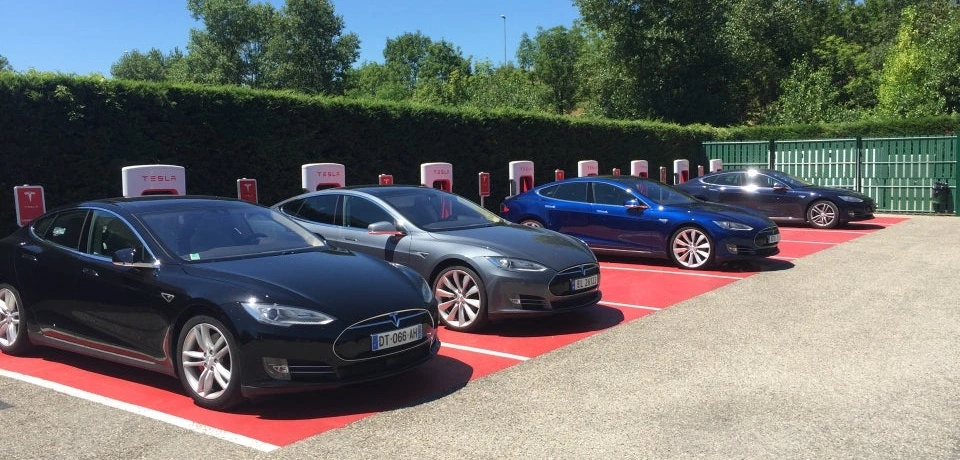During the fifth month of the year, Spain took the lead in the eMobility transition with 5,187 Battery Electric Vehicles (BEVs) registered, a 2.1 per cent increase compared to the same period in 2023, representing 4.55 per cent of the market share.
Meanwhile, in Portugal, BEV sales dropped by 6.8 per cent in May, with 3,147 units registered.
In both countries, Tesla was the most chosen brand by users.
However, when looking at the year-to-date figures, Portugal ranks first with an increase of 11.7 per cent compared to the same period last year, with 15,394 units registered.
On the other hand, the second country on the Iberian Peninsula registered 23,095 units from January to May, resulting in a positive variation of only 0.3 per cent compared to 2023.
Taking into account the sales of electrified vehicles (electric, plug-in hybrids, and electric hybrids), in May, Portugal registered 9,054 new cars, a 9.1 per cent increase compared to the same month of the previous year.
From January to May 2024, sales of this type totaled 42,892 units, a growth of 14.8 per cent compared to 2023.
In Spain, sales of these automobiles decreased by 9.5 per cent in the fifth month, to 10,084 units.
The 8.85 per cent of sales places this type of vehicles in a market volume lower than a year ago when they represented 10.43 per cent.
Up to May, a total of 49,077 electrified cars have been accumulated, barely 1.2 per cent more than in the same period of 2023.
This total represents 9.48 per cent of the total market and represents 0.7 percentage points less than last year’s market share.
What is the reason behind Portugal’s prominence compared to Spain?

It is important to note that, in terms of per capita income, the standard of living of the Portuguese is slightly lower than that of the Spaniards.
Nevertheless, the former has a much higher penetration of electric vehicles than the latter.
“The only way to justify it is that administrative support is granted more easily,” says Pablo de Regoyos, Head of Smart Mobility for Business and Public Administrations at Iberdrola, at the International Mobility Portal Summit.
While both the Spanish Association of Automobile and Truck Manufacturers (ANFAC) and Transport&Environment (T&E) indicate to Mobility Portal Europe the need to promote the registration of corporate fleets.

“In Spain, around 40 per cent of the market is sales to companies and these do not have any incentives,” says Félix García, Director of Communication and Marketing at ANFAC.
Meanwhile, Carlos Rico, Policy Officer at T&E, states: “One of our proposals regarding corporate fleets would be to make a change in the legislation on in-kind remuneration, using the Portuguese legislation as a reference.”
He adds: “It is a neighboring country with very similar conditions, so, in theory, we should be able to replicate their model relatively easily.”
How is the eMobility duel progressing in the deployment of charging points?
In 2023, the public access infrastructure in Portugal continued to grow at an accelerated pace, with an average of 25 stations installed per week, resulting in an increase of approximately 1,300 stations in total during the year.
By the end of the year, the Mobi.E network, the public company responsible for promoting the development of electric and sustainable mobility in the country, had around 4,450 stations and more than 7,800 points.
37 per cent of them are made up of fast or ultra-fast chargers, with powers exceeding 22 kilowatts (kW).
In Spain, throughout 2023, 11,173 points have been installed, of which 23 per cent corresponds to charging with a power greater than 22 kW.
This totals approximately 37,029 public access charging points, of which about 7,728 are out of service, either due to being in poor condition, faulty, or not yet connected to the electricity distribution network.

Regarding this, Carlos Ferraz, eMobility Director at PRIO, highlights that Portugal has certain advantages compared to Spain, mainly because it has an operator that owns “90 per cent of the distribution networks.”
“Therefore, we only have to deal with one entity, which simplifies the process compared to Spain, where it is necessary to deal with multiple of them,” he states.
And he emphasizes: “In Portugal, we have the most simplified processes, they are not the best, but we are working to improve them.”








